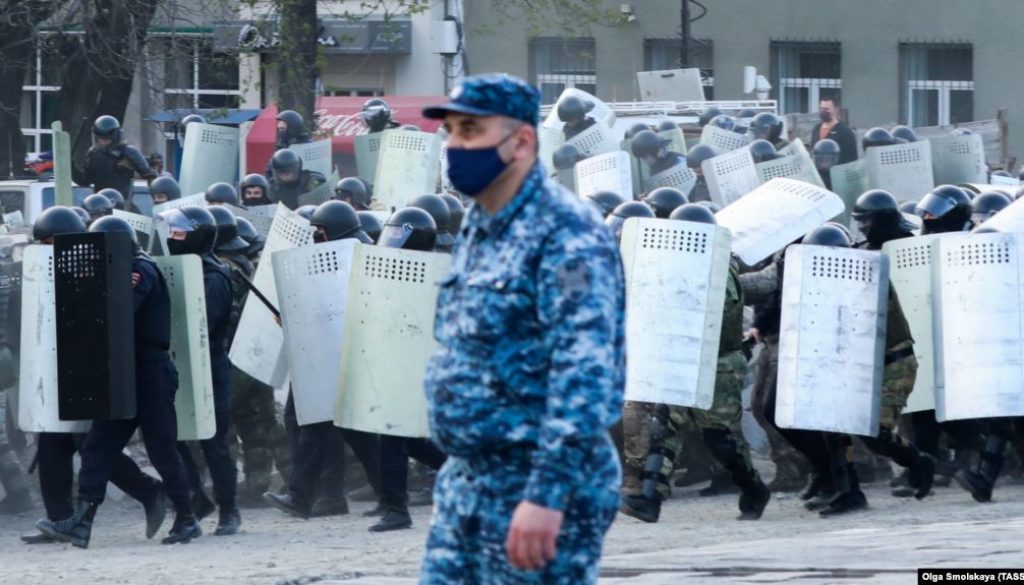Russia: Economic impact of Covid-19 fuels in-person and virtual protests
On March 31, the Parliament approved a law allowing the federal Cabinet and the regional governors to enact unchecked restrictions on human rights in the course of “high alert preceding a situation of emergency”. This vague regime of “high alert” was used instead of the pre-existing “quarantine”, “situation of emergency”, and “state of emergency,” all of which had quite precise legal frameworks. Russia’s Criminal Code was amended to include specific sanctions for those violating quarantine rules and established prison sentences of three to five years for the public dissemination of false information that threatens the public health. Administrative (regulatory) offences for epidemics-related “fake news” had also been introduced; they carry fines starting from USD 400.
By mid-April, the economic effects of the lockdown measures led to several protests around the country. On April 20, around 2,000 people protested against the lockdown in Vladikavkaz, southern Russia. The protesters were forcibly dispersed by police officers in riot gear. Police detained 39 protesters, 13 of which were sentenced to jail terms between three to 15 days. An opera singer who had called for the protest via social media was fined and jailed for two months pending investigation for spreading fake news about the coronavirus. On April 28, gas workers staged a mass rally to demand better working conditions and more transparency regarding COVID-19 cases.
Others have found creative ways to demonstrate while respecting stricter protest regulations, including carrying signs pinned to their bags on the metro or posting semi-nude pics to protest the effects of regulations on the restaurant industry. Opposition groups held an online protest against constitutional reforms which was streamed on Youtube and asked people to “gather virtually using Yandex.Maps, the Russian equivalent of Google Maps.
On May 26, a Moscow-based journalist Ilya Azar held a solo demonstration in front of the Moscow Police HQ. He protested the arrest of Vladimir Vorontsov, an outspoken police whistle blower on dubious charges of extortion. Mr Azar was arrested and sentenced to 15 days in prison (reduced to 10 on appeal), but his arrest and demonstration triggered a wave of further solo demonstrations. Many demonstrators were arrested; they were detained at the police stations across the city for around 3 hours and eventually fined USD 45 for the violation of self-isolation.As the date of the “All-Russia vote” (term used to avoid the word “referendum” which is regulated by law) was set for July 1, multiple protests broke out across the country. Usually those were solo demonstrators or persons posting calls to vote against the proposed amendments on the walls, fences etc. Most of the protesters were arrested, detained at the police stations for several hours, some of them fined for the violation of self-isolation.
Pic: RTVi/Denis Kaminev/Twitter

